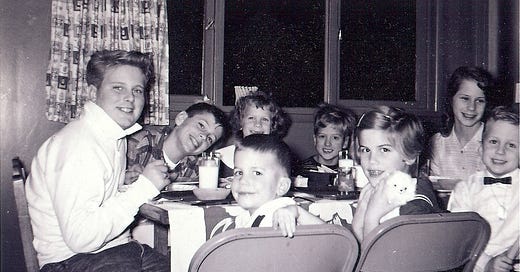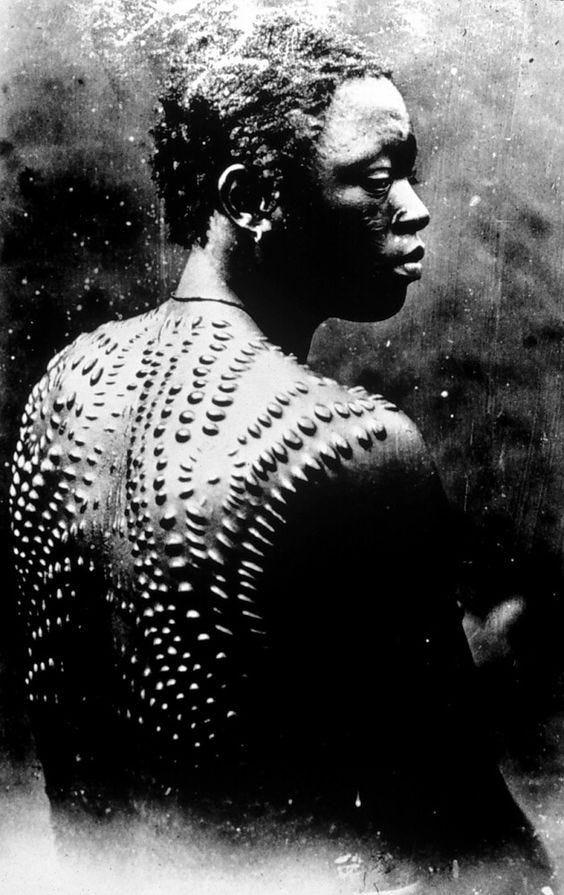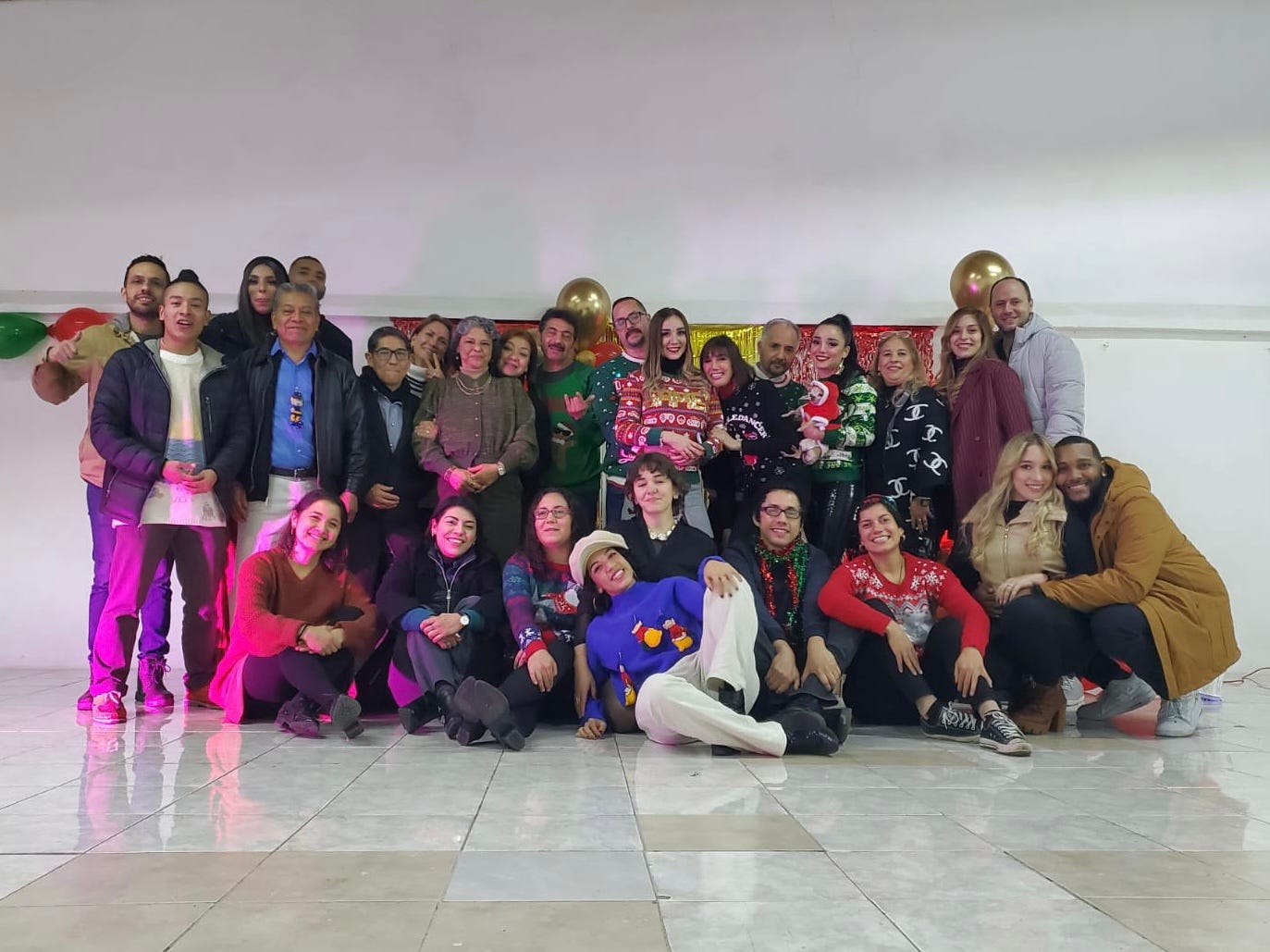When does one become an adult?
This transition is at the root of teens' mental health challenges
Christmas has gone, and if you had a big family celebration, the dinner might have been designed with the infamous “adults’ table and kids’ table”. When I was a teenager that always felt rude, that the adults would place me at the kids’ table rather than among them. I wanted to be part of the adults, for the symbolism behind it.

Some weeks ago, I spent the evening watching videos of teenagers speaking about their lives. One of them said something that struck me: “The world expects me to behave like an adult, but treats me like a child.”
Teenage life is indeed a constant paradox, a blurry line between being part of the kids and almost being an adult. That confusion causes a lot of difficulty.
For today’s article, I asked myself a lot of questions: When does one go from being a child to an adult? What does it take? Why aren’t we so clear about it, and has it always been this way? Is there anything we can do to make our time as a teenager easier?
Teenage time, transition time
The shift from child to adult is not a man-made concept. We can easily observe deep changes happening on biological, emotional and psychological levels between the ages of 11 and 17:
The body changes to become capable of sexual reproduction.
New emotional experiences and mood swings appear.
There’s a collapse in our previous belief system as we search for a chosen identity.
All those transformations make the lives of teenagers super challenging! You probably remember it. What was the most difficult piece of it? The loneliness? The shame of witnessing your body evolve? The lack of meaning? Trying to belong?
Teenage time is all about sensing your limits & your power: What can I do? Who can I be?
And without any support – as is the case in most societies today – the answers to this quest are often found in at-risk behaviors: drug abuse, self-mutilation, unprotected sex... They’re the symptoms of an untackled crisis.
In some ancient cultures, the biological changes happening during the teenage years were not only cared for, but were also part of a rhythm, a clear rite of passage into adulthood. Nowadays this transition is much more difficult and blurry. Let’s talk about it.
When society says you’re an adult
There are many rites of passage in today’s society symbolizing the transition into being “a grownup”. I think of the “quinceañera” (the Latin American tradition of throwing a party for every girl turning 15); the “bar/bat-mitzvah” (the Jewish coming-of-age ritual for 12-year-old girls and 13-year-old boys); and even getting a driver’s license; all are part of signaling one’s entry into adulthood.
They also all assume a change occurring in the child’s life, turning them into a more mature and responsible version of themselves.
Unfortunately, those traditions have lost their deeper meaning. If a change was really happening with such rite, it would imply that society, starting with one’s parents, would treat the newly young adult differently.
Yet in the wake of a quinceañera or a bar-mitzvah, you most likely won’t be given new responsibilities to go with your new status. You might be expected to behave like an adult, but you will still be treated as a kid.
“If the young are not initiated into the tribe, they will burn down the village just to feel its warmth.”
Interestingly, in the past, the “teens” wasn’t a thing. You’d just go from being a child to being an adult. This would often happen with a girl’s first period and with a boy’s changed voice. When this happened, there would be a clear separation ritualized by the community. It was a moment of transmission of power, from the parents to their children. It was the initiation into the tribe.
These rituals were meant to prepare children for the challenges coming in life. They were often scary and very difficult physically. But how meaningful! You can see an example of this in the girl’s rite of passage in the Apache community.
Lessons learned
We surely don’t want to go back to the life-threatening rites of passage found in some cultures (see here), but could we brought back these moments’ deeper symbolism?
Joseph Campbell says:
“A child has to give up his childhood and become an adult, has to die, you might say, to his infantile personality and psyche and come back as a self-responsible adult.”
It is clear that rites of passage into adulthood supports the mental health of teenagers. So what could we do to initiate children into a transition that would make them feel empowered? And how to convince parents and society to give teenagers more responsibilities?
What do you think about it?
I hope you enjoyed reading this piece as much as I enjoyed writing it,
With love,
Zelda
👉 Subscribe for more insights on Social-Emotional Learning, the Future of Education & the people building it:
Hey! Zelda here - I’m taking some days off (doing other type of work!) - You’ll hear from me again on January 9th :)
Sources:
- Instituto Macuil & María Islas
- Rites of Passage and Positive Mental Health of young people
- Rites of Passage: How Our Ancestors Handled the Teen Years





For myself, there were mainly 2 aspects refraining me from giving responsibilities to most people :
- Trust : I though I was smarter and trusted more my judgements than the one of others
- Consequences : I feared that the result would not match my expectations and I would have to deal with the consequences
I was able to improve my ability to give responsibilities by thinking long term and gradually giving trust/responsibilities.
Regarding teenagers, I though it was not possible legally for them to contribute to NGOs.
It seems that in fact they can in France.
I am going to experiment collaborating with teenager volunteers.
This is great Zelda. You perfectly summarized the why behind the capstone projects I help lead students through as they transition into their teenage years. These are important academic rituals that help guide students through their learning journeys and empowers them to make sense of themselves as learners and the world around them. Loved reading this!